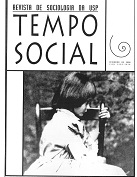Reforma agrária: o impossível diálogo sobre a História possível
DOI:
https://doi.org/10.1590/S0103-20701999000200007Palavras-chave:
reforma agrária, questão agrária, movimentos sociais, governabilidade, Fernando Henrique CardosoResumo
Os desencontros entre o governo, de um lado, e o MST, a Igreja e as oposições, de outro, quanto à política de reforma agrária, só podem ser compreendidos se tivermos em conta o que vem a ser a questão agrária no Brasil. Num país em que o grande capital se tornou proprietário de terras, a concepção clássica da questão agrária, e das reformas que ela pede, fica substancialmente alterada. São essas alterações que propõem as condições e os limites da reforma agrária no país. São elas, também que apontam o desenrolar possível da história brasileira a partir dessa referência estrutural. A reforma agrária se tornou uma reforma cíclica em virtude da, de certo modo, contínua entrada e reentrada em cena de clientes potenciais dessa medida. O fato de que o MST e os sem-terra tenham assumido a iniciativa das ocupações, atuando o governo como suplente para fazer a reforma, não indica a debilidade do Estado democrático para realizá-la. Apenas indica que a sociedade civil, através de organizações e movimentos populares, passou a ter um papel na nova estrutura do Estado brasileiro.
Downloads
Downloads
Publicado
Edição
Seção
Licença
Copyright (c) 2015 Tempo Social

Este trabalho está licenciado sob uma licença Creative Commons Attribution-NonCommercial 4.0 International License.



